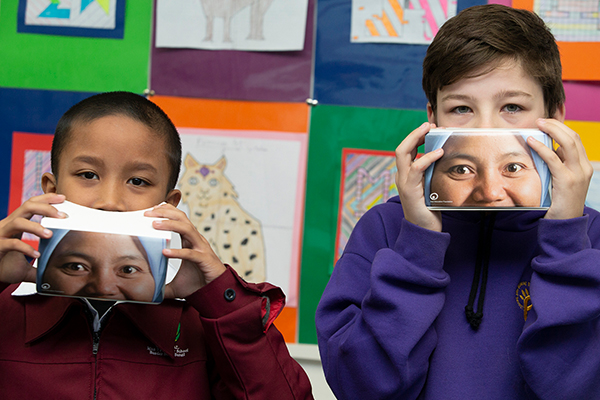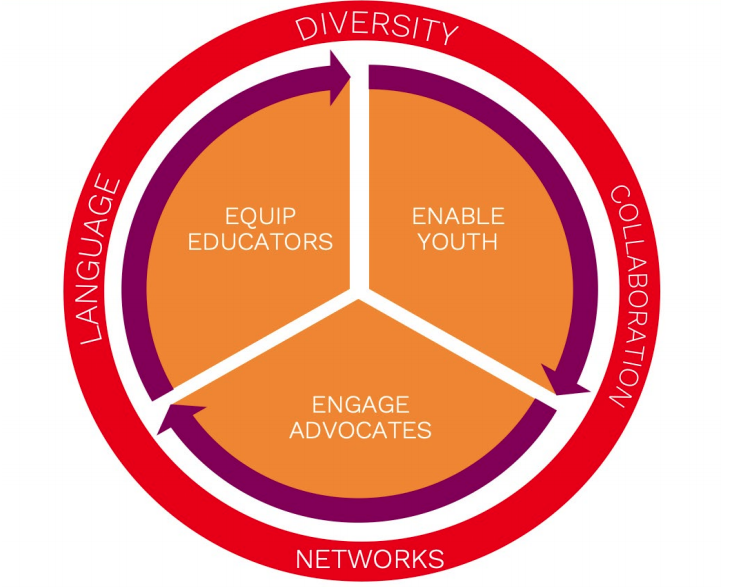by
User Not Found
| Jan 29, 2021
Hamish Curry, Executive Director, Asia Education Foundation

In 2012 I was fortunate to be in the TEDxMelbourne audience to hear Shanaka Fernando, founder of Lentil As Anything, speak passionately about his story, ‘Universal pay as you feel'.
His closing words have since resonated with me.
“We call ourselves a human race, but this is not a race, this is not a competition. I prefer the term ‘humankind’. It implies kindness. We share an affinity. There is a richness that awakes us… our ability to embrace and be open to each other. For one day of the year, pay as you feel. Can we start with that?”
The intention of connecting people across cultures, communities, borders, and contexts means to open people to different perspectives, new ideas and unique experiences. The impacts of doing so have been broad, long lasting and incredibly powerful. However, much of the work AEF has done in linking education to intercultural learning and partnerships often feels intangible. We can count people, partners and measure participation, but we might never really understand the type and time the impact takes.
This is why our work is so important. In the same way a teacher might only glimpse the ripples they inspire in their learners, AEF is building relationships and collaborative approaches that shift how educators and students see the world; and how they interact with it. If we want educators and our youth to appreciate and elevate the connections between Australia and our diverse Asia-Pacific neighbourhood, then mindsets, skillsets, and values matter.
In simple terms, AEF is driving how we equip educators and students with the intercultural learning and global perspectives to navigate a shared future with Asia-Pacific. This is our mission in our AEF Strategy 2020-2023. This learning needs to happen at local and international levels. Yet there is an all-too-common assumption that Asia is ‘out there’. As one of our school leader participants in the Victorian Building Global Citizenship Course said last year, “the journey into global citizenship, we were thinking that it starts outside of our school, but through this whole process we’ve realized that we need to start within our school.”
‘World-class education’ is not a relentless focus on literacy and numeracy.
We’ve been saying this for a while, but a truly ‘world-class’ education must include knowledge, understanding, and skills to engage with the world.
The AEF have also been working on an Intercultural Learning Framework which highlights the mindsets and skillsets that sit alongside the curriculum and considers the perspectives of learners. It also takes us closer to better articulating the mixed space of intercultural understanding, international mindedness, and global citizenship. We also explored how the 2020 OECD PISA Report on Global Competence sheds even further insights and data on this.
To ignite greater intercultural learning in Australian education, we must equip educators, enable youth, and engage advocates. To address racism and isolationism we must help learners see past the assumptions and stereotypes that lead to prejudice. AEF considers four enabling factors integral in the work we do: Language, diversity, collaboration and networks – these ingredients shape the role of people, digital platforms and resources, and the key projects we support. Across professional learning, youth programming, school partnerships, and events and media AEF presents different voices and perspectives that emphasise the importance of intercultural learning.

The strategic pathway for AEF is not unexpected. Our goals are simple: to expand two-way engagement with Asia-Pacific, and to increase education outcomes through intercultural learning.
To achieve these, we see five areas for action:
1. Build School Partnerships
2. Expand Intercultural Learning
3. Generate Education Research
4. Amplify Youth Voice
5. Activate Advocates
These objectives in our
AEF Strategy 2020-2023 aim to support education systems in Australia and across Asia-Pacific to tackle intercultural learning together.
AEF works with our partners and supporters to amplify this work.
While there are so many schools doing incredible work on intercultural learning, there are equally many that appear content to tolerate a kind of ‘ice-age’ in international engagement and global citizenship; an insular pandemic response that will be very difficult to thaw without more creative approaches.
Education faces the same challenges as society.
To move our framing from a ‘human race' to 'humankind’ we must stop seeing binary solutions, we must engage more compassion with the gaps in equity, and we must collaborate with a broad range of stakeholders.
Leadership must increasingly give way to a ‘leadershift’ in decision-making to those who are affected by the standards, policies, and practices being proposed. If we want ‘active and informed members of our community’ (Alice Springs ‘Mparntwe’ Education Declaration) then equipping, enabling, and engaging learners are vital next steps.
In 2021, AEF reaffirms its commitment to creating intercultural learning opportunities in education across Australia and Asia-Pacific.
#AEFchat
Comment